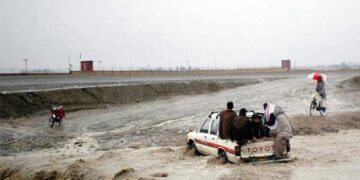![]() Follow Us on Google News
Follow Us on Google News
Pakistan’s economic indicators and the increased risk of default have caused concern for millions of citizens across the country in recent days.
The nation faces various challenges, including electricity shortage, political conflicts, and lack of foreign investment, unstable internal investment and environmental issues.
Even though Pakistan has taken significant steps for a healthy recovery in fiscal year 2021, the COVID pandemic has impacted the growth. Taking numerous crucial actions, which are now required to achieve sustained economic development and protect Pakistan from the possibility of default, has never been done before. Following is a review of such actions:
To strengthen economy, the first step would be to reform governance and the tax system. The budget should allocate funds for initiatives like cutting losses, boosting domestic manufacturing, and reducing corruption. Pakistan would have a consistent stream of foreign investment if tax policies are implemented in a transparent and accountable manner.
Pakistan will need to pay attention to the development of the output based on the growth profile in order to lower the current account deficit and raise foreign exchange reserves. The country will be able to compete better on the international market by diversifying its industries, enhancing business infrastructure, and offering exporters incentives. Furthermore, Pakistani exports may be able to access new markets through the active inclusion of regional trade agreements.
Attracting foreign investment is very important for economic development and reducing the risk of default. Pakistan should work to ease regulations, ensure investor protection, and create an investment-friendly environment for foreign businesses. The economic privatizations of the zones, which will help attract foreign investment by implementing investor-friendly policies and development.
Increasing foreign investment is crucial for economic growth and lowering default risk. By providing international businesses with compliance, Pakistan should work to ease regulations, ensure investor protection, and create an investment-friendly environment for foreign businesses. The privatization of the economic zones, which by enacting investor-friendly policies and development, will assist in attracting international investment.
For a very long time, Pakistan’s industry has struggled with a lack of energy, which has prevented investment and slowed down industry growth. Investments in the infrastructure of electricity production, transmission, and distribution are required to resolve the power problem. Energy supply shortfalls and price volatility can be reduced and stabilized by energy diversification, which will boost industrial productivity.
A functioning economy requires a robust tax industry. To close tax loopholes, Pakistan should tighten banking regulations, increase transparency, and strengthen its regulatory system. Business and economic development will be aided by initiatives to broaden financial inclusion and support single-access loans for small and medium-sized businesses.
Investing in human resources is crucial if we want to achieve sustained economic growth. In order to prepare its workforce for a science-based economy, Pakistan should prioritize skill development and education. Programs for social security and healthcare are crucial for boosting population welfare and eradicating poverty. These steps will lessen the possibility of a default and put us on the road to steady development.

















